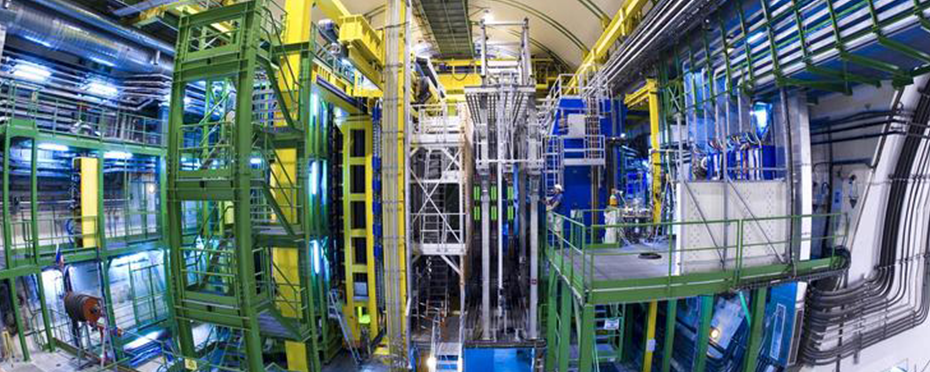
TAUFU project approved by the A*Midex Foundation as part of the "International 2018" call, began its activities in november 2019. It builds on the broad international LHCb network around CERN, and implements a strong collaboration with Tsinghua University in Beijing (China).
The project led by Dr. Olivier Leroy was selected on March 18, 2019 by the Steering Committee of the A*Midex Foundation as part of the "International 2018" call for projects of A*Midex. This call aims to structure and strengthen the international cooperation of Aix-Marseille University and the A*Midex partners through the support to international research, development and innovation projects with strong strategic potential.
The project entitled "Tsinghua and AMU Test of Lepton Flavor Universality" (TAUFU) is led by the LHCb team at the Marseille Centre de Physique des Particules (CPPM). The LHCb experiment is installed at the Large Hadron Collider LHC at CERN in Geneva. The aim of the experiment is to highlight New Physics by performing precision measurements in the decay of beautiful and charmed hadrons. The LHCb collaboration involves 1335 members from 81 laboratories and universities in 19 countries. The Large Hadron Collider (LHC) at CERN has, since its commissioning in 2009, produced an impressive amount of scientific results, including the discovery of the Higgs boson. It allows not only direct research of new physics at the energy frontier, but also indirect research at the intensity frontier. The latter are essential because they allow probing energy scales far beyond those available in the accelerator's centre of mass. This research is precisely the work carried out by the LHCb collaboration, in which the CPPM group has played a leading role since 1998. Among them, the anomalies observed in the b→cℓνυ (ℓ = ταυ, µ) charged current are causing great excitement in the community. Indeed, the experimental measurements deviate from theoretical predictions by around 3 standard deviations. If confirmed, this will be the first observation of Lepton Flavor Universality Violation. The TAUFU project intends to analyse data recorded by the LHCb experiment, with the aim of testing one of the fundamental aspects of the Standard Model of Particle Physics: the universality of lepton couplings.
At the international level, it intends to set up a long-term collaboration with the prestigious Tsinghua University in Beijing (China) in order to play a major role in highlighting processes beyond the Standard Model. The Franco-Chinese Laboratory of Particle Physics (Laboratoire Associé International) now exists for more than 10 years and several fruitful partnerships have emerged between the Chinese groups and the Physics group of the CPPM. However, no collaboration existed yet with the CPPM LHCb group. In 2018, 4 new Chinese groups joined the LHCb collaboration. There is thus a real opportunity to develop a fruitful and long-term partnership, not only with Tsinghua University, but also with the other Chinese groups that have recently become members of the LHCb collaboration.
The project is implemented at the Centre de Physique des Particules de Marseille (UMR AMU-CNRS). It officially started on 1 November 2019 for a period of 24 months. Over this period, the project will be supported by the A*Midex Foundation with a grant of 164,140 euros.
credits photos: © Coll. LHCb CERN

